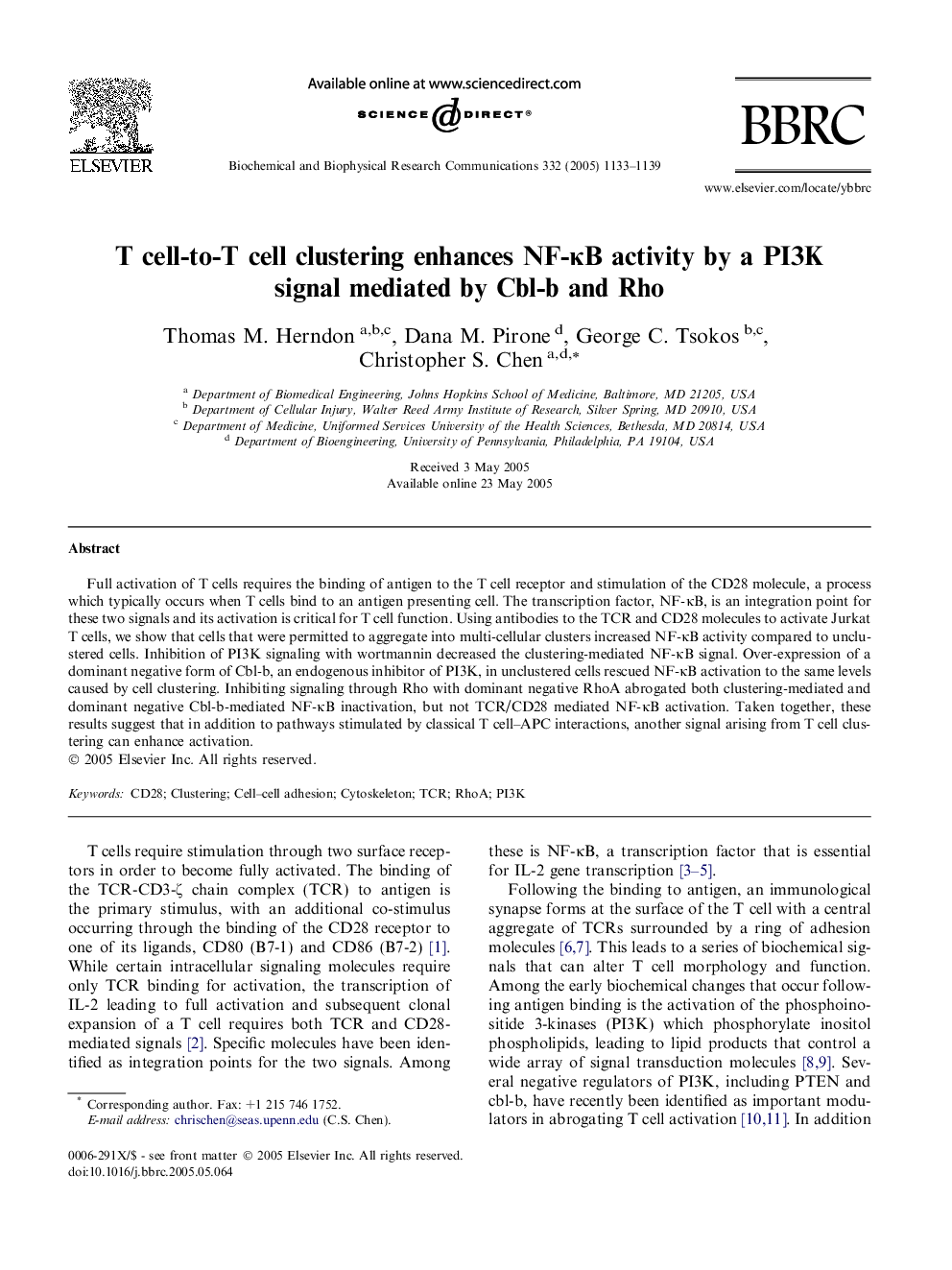| Article ID | Journal | Published Year | Pages | File Type |
|---|---|---|---|---|
| 10768968 | Biochemical and Biophysical Research Communications | 2005 | 7 Pages |
Abstract
Full activation of T cells requires the binding of antigen to the T cell receptor and stimulation of the CD28 molecule, a process which typically occurs when T cells bind to an antigen presenting cell. The transcription factor, NF-κB, is an integration point for these two signals and its activation is critical for T cell function. Using antibodies to the TCR and CD28 molecules to activate Jurkat T cells, we show that cells that were permitted to aggregate into multi-cellular clusters increased NF-κB activity compared to unclustered cells. Inhibition of PI3K signaling with wortmannin decreased the clustering-mediated NF-κB signal. Over-expression of a dominant negative form of Cbl-b, an endogenous inhibitor of PI3K, in unclustered cells rescued NF-κB activation to the same levels caused by cell clustering. Inhibiting signaling through Rho with dominant negative RhoA abrogated both clustering-mediated and dominant negative Cbl-b-mediated NF-κB inactivation, but not TCR/CD28 mediated NF-κB activation. Taken together, these results suggest that in addition to pathways stimulated by classical T cell-APC interactions, another signal arising from T cell clustering can enhance activation.
Related Topics
Life Sciences
Biochemistry, Genetics and Molecular Biology
Biochemistry
Authors
Thomas M. Herndon, Dana M. Pirone, George C. Tsokos, Christopher S. Chen,
